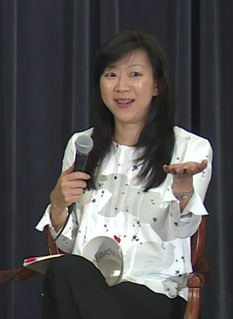A Quote by Anne Stevenson
I play with language a great deal in my poems, and I enjoy that. I try to condense language, that is, I try to express complicated but I hope real emotions as simply as possible. But that doesn't mean the poems are simple, just that they are as truthful as I can make them.
Related Quotes
It's true, there aren't many explicit references to Canada in my book. And not many explicit references to the U.S., either. I try to fill my poems with enough real, observed detail that the poems create a believable world - but I don't write poems for the sake of telling my own story. My life is not important or interesting enough to warrant that kind of documentary. Instead I try to use my experience as a way of understanding situations that are common to many people. I want readers to project their own lives onto my poems.
The problem is that too many adults think their kids' lives are simple, or they try to make their lives simple, when their emotional lives are just as complicated as ours. They might have a few less tools to deal with it because they're young, but the emotions are all the same, and the subject matter is all the same.
For me, form is something I locate in the process of writing the poems. What I mean is, I start scribbling, and then try to form the poem - on a typewriter or on my computer - and, by trial and error, try to find the right shape. I just try to keep forming the poem in different ways until it feels right to me.
I learned from my parents to do my best to not react to negative emotions. I try to think about what has happened and find the lessons that can be learned from these difficult experiences. I try to deal with these negative emotions right away because, if they stay inside, they can hurt and do a lot of damage. I release them as soon as possible so I can be free.






































